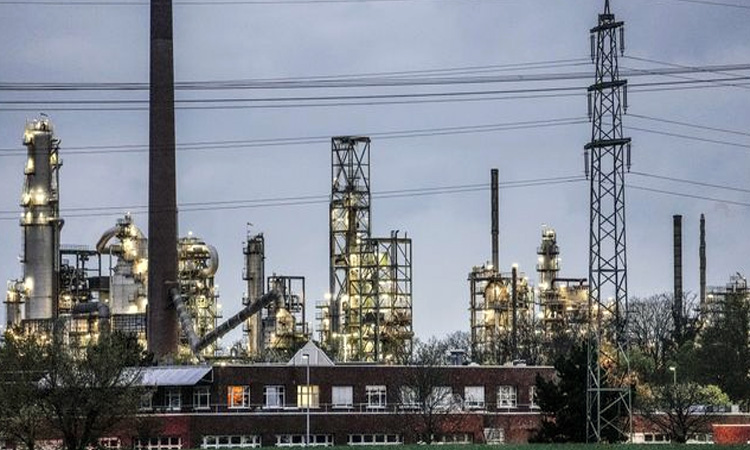 |
| A Shell plant is illuminated in Wesseling, near Cologne, Germany, on April 6. Image Credit: AP |
Berlin- The EU is considering an oil embargo against Russia, and Russian coal will be banned beginning in August.
Germany says it is making progress in weaning itself off Russian fossil fuels and expects to be completely self-sufficient from Russian crude oil imports by late summer.
Economy and Climate Minister Robert Habeck stated on Sunday that Europe's largest economy has reduced its share of Russian energy imports to 12% for oil, 8% for coal, and 35% for natural gas. Ukraine and other European countries have put pressure on Germany to cut billions of euros in Russian energy imports, which help fill Russian President Vladimir Putin's war chest.
"All of these steps that we are taking necessitate a massive collaborative effort from all actors, and they also entail costs that will be felt by both the economy and consumers," Habeck said in a statement. "However, they are required if we are not to be blackmailed by Russia."
The announcement comes as the European Union considers a Russian oil embargo in response to a decision to ban Russian coal imports beginning in August. The EU pays Russia $850 million per day for oil and natural gas, and Germany is one of the bloc's largest importers of Russian energy.
Germany has managed to transition to foreign oil and coal imports in a relatively short period of time, implying that "the end of dependence on Russian crude oil imports by late summer is realistic," according to Habeck's ministry.
Weaning Germany off Russian natural gas is a far more difficult task.
Germany imported more than half of its natural gas from Russia before Russia invaded Ukraine on February 24. According to the ministry, this share has dropped to 35% as a result of increased procurement from Norway and the Netherlands.
Germany intends to accelerate the construction of LNG terminals in order to further reduce Russian imports. According to Germany's Energy and Climate Ministry, several floating LNG terminals could be operational as early as this year or next. That's an ambitious timeline that, according to the ministry, "requires an enormous commitment from everyone involved."
Germany has resisted calls for a European Union boycott of Russian natural gas. It was also concerned last week when Moscow abruptly halted gas supplies to Poland and Bulgaria after they refused Russian demands to pay for gas in rubles. Russian moves were dubbed "energy blackmail" by European officials.
According to Germany's central bank, a complete shutdown of Russian gas would result in a loss of 5% of GDP and higher inflation.
Source: Associated Press









0 Comments
please do not enter any spam link in the comment box